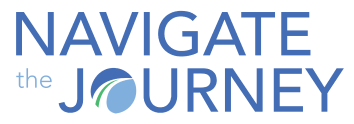The Rockefeller Habits: From Routines to Decisions to Results
In 1855, 16-year-old John D. Rockefeller walked into the office of Hewitt & Tuttle in Cleveland, Ohio, and started his career as an assistant bookkeeper. And as every successful entrepreneur knows, building a great business takes more than a great idea and outsized ambition—it requires disciplined habits, making strategic decisions, and following through to completion on what needs to be done. John D. Rockefeller, the world’s first self-made billionaire, understood and practiced these fundamentals well. Though over 100 years old, his approach to scaling businesses still offers powerful lessons for today’s entrepreneurs looking to continually outsmart their competition.
In 2002, Verne Harnish distilled these timeless principles in his book Mastering the Rockefeller Habits, which can be viewed as the “foundation” of the overall Scaling Up methodology. Verne’s subsequent book, “Scaling Up: How a Few Companies Make It...and Why the Rest Don't,” builds upon the timeless principles of the Rockefeller Habits and reframes scaling a business through the lens of the 4 Decisions Framework, thereby adding the tools and constructs needed to help entrepreneurs achieve their vision in today’s dynamic and fast-changing world.
The 10 Rockefeller Habits: A Roadmap to Growth
The Rockefeller Habits are a set of 10 fundamental practices that help businesses stay aligned, focused, and ultimately achieve desired results. Here’s a quick overview of these habits:
The executive team is healthy and aligned.
Everyone is aligned with the #1 thing that needs to be accomplished this quarter to move the company forward.
A communication rhythm is established, and information moves through the organization quickly.
Every facet of the organization has a person assigned with accountability for ensuring goals are met.
Ongoing employee input is collected to identify obstacles and opportunities.
Reporting and analysis of customer feedback data is as frequent and accurate as financial data.
Core values and purpose are “alive” in the organization.
Employees can articulate the key components of the company’s strategy accurately.
All employees can answer quantitatively whether they had a good day or week.
The company's plans and performance are visible to everyone.
These habits form a strong foundation, but as businesses grow, they need additional approaches to manage complexity and drive performance. That’s where Scaling Up’s 4 Decisions Framework comes in by providing additional tools and constructs to build upon the timeless routines of the Rockefeller Habits.
Scaling Up’s 4 Decisions Framework: The Evolution of the Rockefeller Habits
The 4 Decisions Framework in Scaling Up builds upon the Rockefeller Habits by focusing on four critical areas that every growing business must master: People, Strategy, Execution, and Cash. Let’s explore how these decisions connect with and enhance the Rockefeller Habits.
People: Building the Right Team
The Rockefeller Habits stress the importance of having a healthy, aligned leadership team. Scaling Up goes further by providing tools like Topgrading, which ensures businesses hire and develop the right people at all levels who can support long-term growth. Building a strong leadership team for growth is crucial to maintaining the momentum needed for success.Strategy: Clarifying Vision & Differentiation
While the Rockefeller Habits focus on quarterly priorities and clear communication to ensure alignment with the strategy, Scaling Up’s 7 Strata of Strategy pushes companies to think beyond immediate goals and consider their competitive positioning, long-term vision, and strategic differentiation in an ever-changing competitive landscape. This leads to optimizing business strategy with the Rockefeller Habits for sustainable success.Execution: Driving Discipline and Accountability
The greatest leadership team, vision, and strategy won’t amount to a hill of beans unless the entire organization can execute. The Rockefeller Habits help create communication rhythms and accountability, but Scaling Up enhances this with more advanced tools like Execution Dashboards and detailed agendas for different types of meetings (Meeting Rhythms). These ensure that businesses maintain focus, track key performance indicators (KPIs), and continuously improve their processes as they grow. Mastering fundamental habits and routines allows organizations to scale effectively.Cash: Optimizing Financial Results
Cash flow is the lifeblood of any business. The Rockefeller Habits can help reinforce cash management practices through Scoreboards and Critical Numbers, but Scaling Up dives deeper with tools like Cash Acceleration Strategies (CASh) and The Power of One, which show how small changes in pricing, volume, and receivables can significantly improve cash flow and profitability. This allows businesses to make smarter financial decisions that fuel growth and ensure the business does not ‘grow broke’.
From Habits to Decisions: Turning Discipline into Results
The Rockefeller Habits provide the daily disciplines necessary for running a strong, cohesive business at any time, in any industry. But as companies scale, it’s not enough to simply maintain good habits—leaders must also make strategic decisions that drive results. The 4 Decisions Framework in Scaling Up gives businesses the tools to translate these habits into actionable decisions that impact every aspect of growth. The decision-making strategies for successful businesses integrate both the foundational habits and strategic foresight.
By connecting habits (what you and your team do consistently) to decisions (where you and your team focus), Scaling Up ensures that these decisions lead to measurable results. The combination of Rockefeller Habits, the 4 Decisions Framework, and the Scaling Up Growth Tools creates a powerful system that accelerates growth. Ultimately, achieving business growth through the Rockefeller Habits requires a comprehensive approach that leverages both day-to-day routines and longer term strategic planning & execution.
Scale Smarter with the Rockefeller Habits and Scaling Up
Stay tuned for future posts as we break down each of the 10 Rockefeller Habits in more detail and show how they connect to Scaling Up’s powerful 4 Decisions Framework and Growth Tools. View this series as helping you evaluate “What got us here won’t get us there.” Is it time for you to assess your current habits, decisions, and business operating system methodology to ensure they will allow you to lead your business to achieve your preferred picture of the future?
